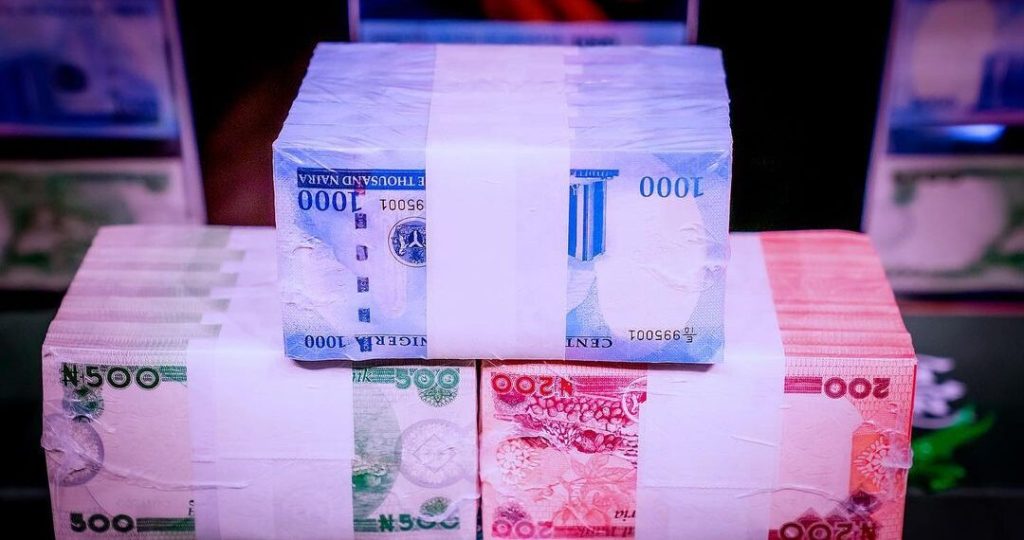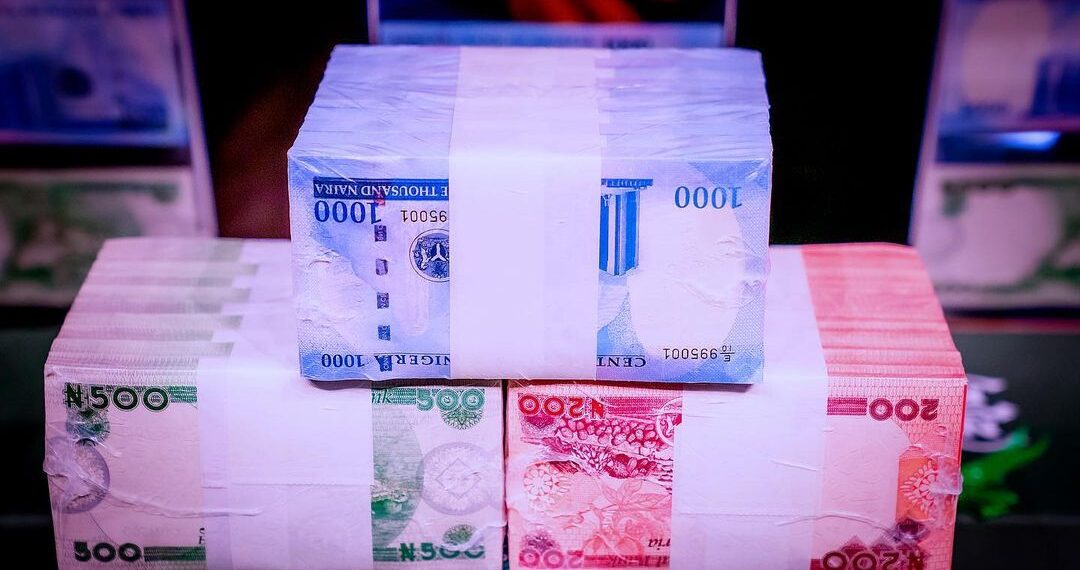The two arms of the National Assembly, the Senate and the House of Representatives, yesterday asked the Central Bank of Nigeria (CBN) to extend the deadline for the usage of old naira notes beyond the January 31 deadline set by the apex bank.
While the Senate asked that the deadline be extended to July 31, the lower chamber said it should be extended to June.
But the governor of the CBN, Godwin Emefiele, said yesterday that the January 31 deadline remained sacrosanct.
The Senate at plenary yesterday also urged the CBN to open an exchange window where people without bank accounts could deposit their old notes.
The resolution of the Senate was a sequel to a motion by Senator Sadiq Umar, APC, Kwara North, who demanded the extension to July 31, said he was worried by the insistence of the apex bank that there would be no extension.
Recall that CBN had on October last year, said the old naira notes would seize to be legal tender as of January 31, but the Senate in December passed a resolution urging the apex bank to extend the deadline to June 30.
Moving the motion, Umar recalled that the Senate in its resolution on December 28, 2022, urged the CBN to extend the use of the old notes from Jan. 31 to June 30, but noted, however, that the apex bank had insisted on terminating the use of the old naira notes by end of January.
Umar, who lamented that there weren’t enough new naira notes in circulation, moved that the deadline be extended to July 31.
He said: “Experiences around the world have shown that such abrupt decisions, if not controlled, usually created chaos. The Senate should extend the use of the old notes to July 31.”
In their contributions, most senators overwhelmingly threw their weight behind the extension, citing scarcity of the new notes, both in the banks and at the various Automated Teller Machine points across the country.
Supporting the motion, Senator Ibrahim Hadejia, APC-Jigawa North East, said the call for extension was for their constituents and not their (lawmakers’) personal benefits.
He said: “In my constituency, no Automated Teller Machine, ATM, is dispensing the new notes.”.
On his part, Senator Adamu Aliero, PDP, Kebbi Central, said the policy would inflict untold hardship on people living in the rural areas, insisting that the CBN governor be invited by the Senate.
Also contributing, Senator Adamu Bulkachuwa, PDP-Bauchi North, said the extension was necessary, otherwise, there would be chaos. We’ve not seen new notes
In her contribution, Senator Biodun Olujimi, PDP, Ekiti South, who lamented that in her local government area, about 90 per cent of the people had not seen the new naira notes, called on the apex bank to “look away from the elections”.
She said if the date was not extended, it would lead to collateral damage which would not augur well for the economy.
On his part, Senator Ali Ndume, APC, Borno South, called on the Senate to use its oversight responsibility on the CBN to order the CBN governor to extend the date.
He said the power of the Senate should not be played down and called on senators to stand firm on the call for an extension.
For Senator Sam Egwu, PDP-Ebonyi North, who was the only senator that opposed the motion, “Nigerians do not have the culture of keeping their money in the bank. It is in Nigeria cash is used arbitrarily; other countries use electronic means. Nigerians are just averse to change.”
In his remarks, the President of the Senate, Senator Ahmad Lawan, noted that most of the senatorial districts did not have banks.
He said: “In rural Nigeria, there are no banks and people transact businesses with cash more often. There is no doubt that we must have a window for exchange. We must have policies by the CBN to have bank branches established in rural areas. We need this extension for most ordinary Nigerians.”
Lawan then put the prayers in the motion to vote and the lawmakers voted in support of the extension of the deadline from January 31 to July 31.
On its part, the House of Representatives did not only call for an extension of the deadline but also at plenary yesterday, resolved to meet with the chief executive officers of commercial banks today.
The meeting, according to the House, is essential to ascertain the true position on the availability of the new naira notes of N200, N500 and N1000 which the CBN said were available.
Consequently, the lower legislative chamber set up an Adhoc committee, chaired by the leader of the House, Ado Doguwa, to meet with the stakeholders. The House also urged the CBN to extend the deadline for the use of the old notes by six months.
The resolution was a sequel to the consideration and adoption of a motion moved by Sada Soli under matters of urgent public importance.
Presenting the motion, Soli noted that pursuant to Section 2, paragraphs (a) and (d) of the Central Bank of Nigeria (Establishment) Act, 2007, the objects of the Central Bank of Nigeria shall be to ensure monetary and price stability, and promote a sound financial system in Nigeria.

He also noted that banks were places people kept their money for safety and expected to withdraw the same when needed.
Soli:said: “In December 2022, the House of Representatives invited the CBN governor to discuss the cashless policy and introduction of the redesigned N200, N500 and N1,000 notes. The cashless policy is in tandem with global best practices.
“The House is also aware that for such a policy to be successful, it should not be overbearing on the people and the economy.
“The financial institutions in Nigeria lack the infrastructure to handle a sudden increase in customer base as well as adequate employees to handle any challenges that could arise in the process of implementing the cashless policy within the limited time given by the CBN.
“Banks and POS outlets are struggling with a shortage of the redesigned new Naira notes, ahead of the CBN deadline of January 31, 2023, consequently making it difficult for them to comply with the CBN directives as regards availability of the new notes for customers. “Despite several concerns and appeals by the National Assembly, the Governors Forum, the Bank Customers Association of Nigeria, and a host of other stakeholders in the country for the CBN to extend the period for the currency swap of the new Naira notes as well as a review of the cashless policy, the CBN has remained adamant on the given deadline.
“Due to inadequate sensitization and the rush in the implementation of the policy, the country is exposed to a situation where businesses are rejecting the old currency, even in the face of unavailability of the redesigned new Naira notes. “As a result of the rigidity in the implementation of the policy, there is a tendency of decline in the economy if cash withdrawals are delayed due to short supply of the new Naira notes;
‘’Cognizant that in order for the policy to be successful and acceptable, the CBN should keep their relationship closer to reality, rather than theorized assumptions.
“In global best practices, currencies are phased out, not forced out, thus adequate time is required for such policy.
In his remarks, the speaker of the House, Femi Gbajabiamila, who presided over the plenary, said though the policy was good, its timing for implementation was not palatable.
He agreed to an amendment earlier proposed by Obinna Chidoka that the bank executives be invited for questioning.


